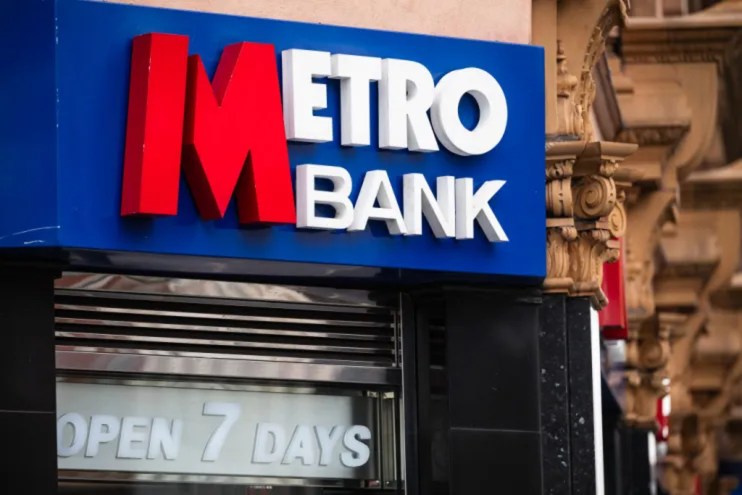Metro Bank share price soars after lender reports its on track for profitability later this year

Metro Bank shares soared higher after the bank said it expects to return to profitability in the final quarter of this year.
In the first half of 2024, Metro Bank swung to a pretax loss of £33.5m compared to a profit of £15.4m in the same period last year.
This was largely due to a lower net interest margin – a measure of how profitable lending is – which narrowed to 1.64 per cent in the first half, down from 1.85 per cent in the second half of last year.
Despite the poor set of results, the bank confirmed that it expects to return to profitability in the final three months of this year. Beyond 2024 it expects to deliver a return on tangible equity – a key measure of profitability – in the mid-to-upper single digits in 2025, rising to double digits in 2026 and mid-teens thereafter.
This would be driven by “cost discipline, asset rotation and the mortgage portfolio sale”, the bank said.
“Our upgraded guidance today reflects progress against our strategy, including the recent residential mortgage portfolio sale. We expect these actions to positively impact on our balance sheet in the fourth quarter of the current financial year, delivering a return to profitability,” boss Dan Frumkin said.
Shares in the bank jumped 22 per cent on Wednesday.
Having suffered a challenging year, in which shares have dropped 66 per cent, Metro Bank is attempting to reposition its book towards higher yielding commercial, corporate and SME loans.
Just last week it confirmed the sale of a portion of its mortgage book to Natwest for up to £2.4bn.
In line with its plans, Metro Bank reported that operating expenses had been reduced six per cent compared to the full year with the bank on track for annualised savings of £80m.
It said it had a “solid credit approved commercial pipeline” in the first half, equivalent to 116 per cent of total new lending last year.
The results come off the back of a very challenging year for Metro Bank. The bank needed to shore up its balance sheet after the Bank of England did not approve its request to use its own models to assess risks on its mortgages and assets last September.
Jaime Gilinski Bacal, a Colombian billionaire, swooped in to rescue Metro Bank by leading a £925m refinancing package overwhelmingly backed by shareholders in November. Bacal took a controlling stake of around 53 per cent in Metro Bank as part of the deal.